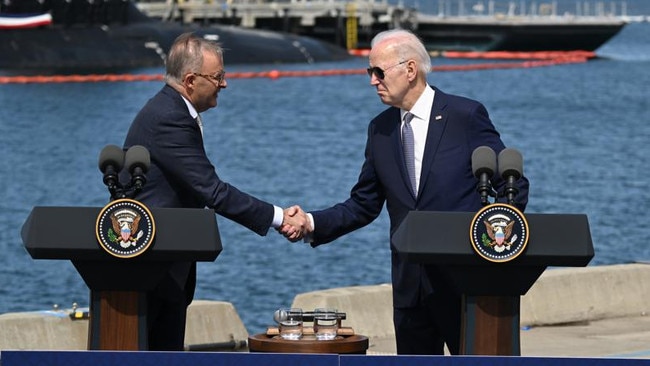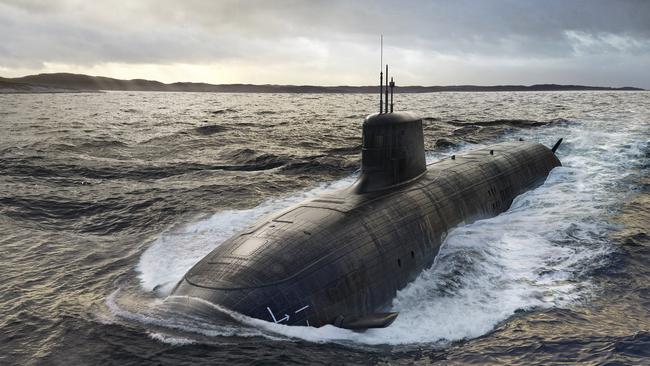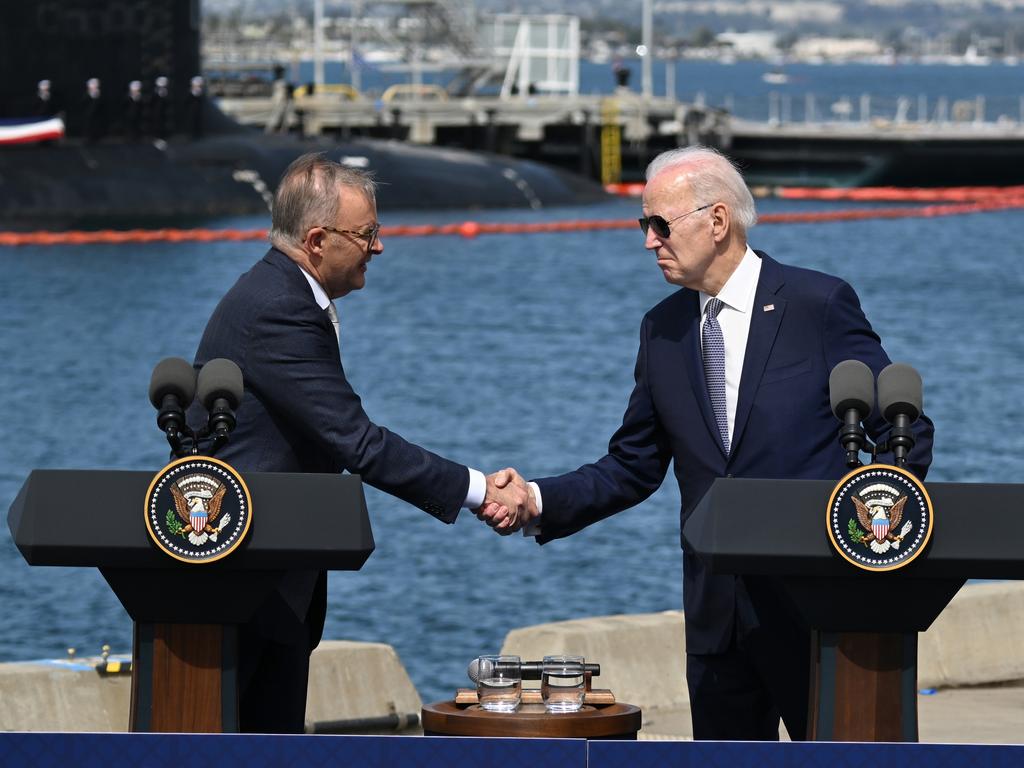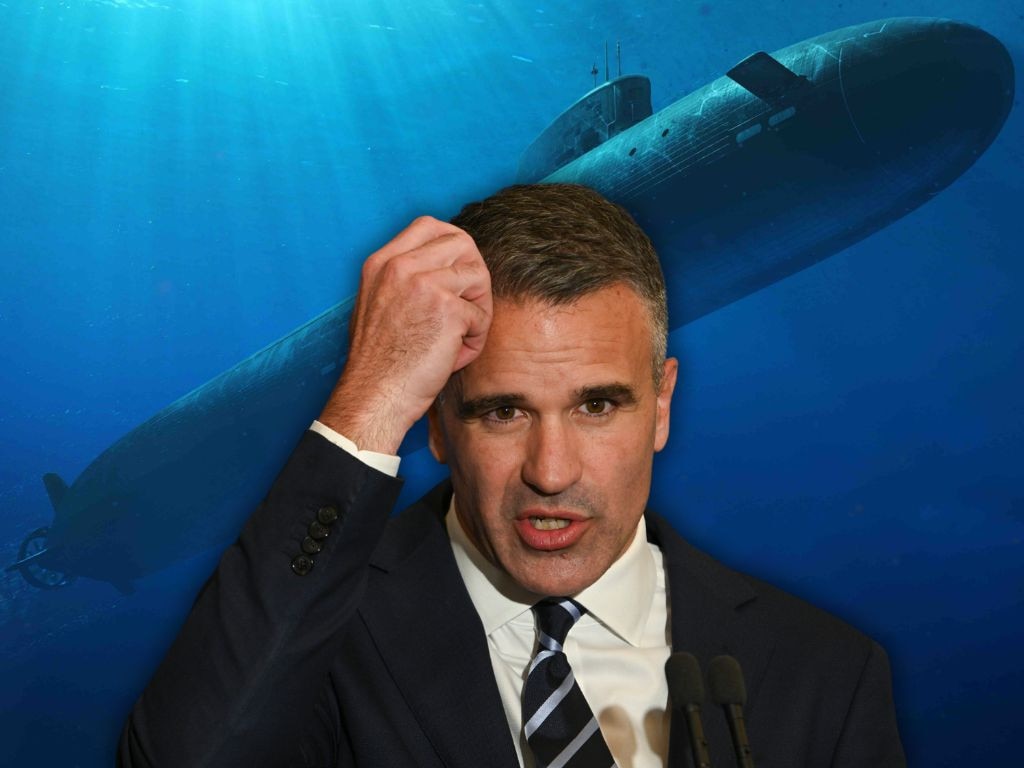Updated AUKUS pact has ‘get-out clause’ for US and UK
An updated AUKUS agreement and political ‘understanding’ between the countries includes an escape clause if the US or UK decides the pact weakens their own nuclear submarine programs.

Australia will shoulder the lion’s share of the risks of the AUKUS pact but has been given no guarantees it will ultimately receive nuclear submarines from the US or UK, new documents reveal.
Treaty documents tabled in parliament on Monday will allow the US and Britain to pull out of the deal with just one year’s notice if they decide it threatens their own nuclear submarine programs.
At the same time, Australia has agreed to indemnify both the US and UK “against liability, loss, costs, damage, or injury” resulting from the AUKUS program, including any problems linked to second-hand Virginia-class submarines to be supplied by the US.
The documents leave the program’s costs up in the air, with the terms of the transfer of nuclear materials and equipment promised under the deal to be “mutually decided” at a later time.
AUKUS critics seized on the revelations, saying Australia could spend billions of dollars on the nuclear submarine plan only to learn sometime in the future the deal was cancelled.
Defence Minister Richard Marles said the new 51-year agreement was a major AUKUS milestone, and came on top of “significant progress”, including the passage of enabling legislation in the US.
The documents, including a revamped AUKUS agreement and a new political “understanding”, commit the nation’s AUKUS partners to make “best efforts” to supply nuclear materials and equipment to Australia over the next 50 years. They put Australia’s status as the junior AUKUS partner beyond doubt, with the US and UK able to terminate the agreement if it is deemed to pose an “unreasonable risk” to their own military needs.
“The governments affirm that co-operation under the agreement is to be carried out in such a manner as to not adversely affect the ability of the US and the United Kingdom to meet their respective military requirements and to not degrade their respective naval nuclear propulsion programs,” the understanding says.
It adds: “A government may discontinue its participation in this understanding earlier and in such case should provide one year’s written notice to the other governments of its intent to do so.”
The clauses come as both the US and Britain struggle to turn around their nuclear submarine programs after years of slow progress and cost blowouts.
The new agreement – which expires in 2075 – also confirms Australia will be responsible for all management, storage and disposal of spent fuel and nuclear waste, including radioactive materials from maintenance of US and British submarines in Australia.
ANU international law expert Don Rothwell said the documents offered “a lot of flexibility” for the US and Britain to not proceed with the submarine program if they decided it was no longer in their interests.
“It just reconfirms that the sort of onus ultimately is on the US and the UK to play ball in terms of meeting their commitments,” Professor Rothwell said, adding the agreement’s 51-year term was “extraordinary”, and pointing to the absence in the documents of any reference to costs Australia would incur.
Australia has promised to inject about $10bn into the US and Britain’s submarine industrial capabilities under the AUKUS program, which is estimated to cost up to $368bn.

Greens defence spokesman David Shoebridge said Australia would have little recourse if anything went wrong under what he called the “irresponsible, one-sided” agreement.
“There are multiple get-out-of-jail-free cards for the US under this agreement,” Senator Shoebridge said. “If at any point the US thinks that providing nuclear submarines to Australia would not be in their interests, they can just pack up their bags and leave, taking all their tech and all our money with them.
“Even though the Australian public has no recourse to get the money back if the US walks away, the Albanese government has put us on the hook to indemnify the US and UK governments if something goes wrong with their technology.
“This is the deal of the century for the US and UK, who must be chuckling all the way to the bank having found the Albanese government and their billions in public dollars.”
The new agreement and political understanding were revealed by US President Joe Biden last Thursday in a letter to the US congress, but their contents were disclosed to Australians only when the documents were tabled in parliament.
Mr Marles said the documents were “an important step forward” for the program, which he said was “not much more than a thought bubble” under the former Morrison government, which struck the initial AUKUS agreement.
“We have now passed multiple tranches of legislation, which … included the establishment of the Australian Submarine Agency and, along with legislation … passed by the US congress last year, we’ve created a seamless defence industrial base between our two countries, which is so critical to delivering this project,” he said.
Opposition defence spokesman Andrew Hastie blasted Mr Marles’s “petty point-scoring”, calling on the government to put the key national security program above politics.
“Richard Marles’s statement was thoughtless, puerile and disrespectful towards our US and UK partners, who have entrusted Australia in forming this historic, nation-building, trilateral partnership,” he said. “At a time when building social licence is key, the language we use about AUKUS matters.”
The new AUKUS agreement will have to be examined by the joint standing committee on treaties and ratified by the federal parliament. Australia has been promised at least three Virginia-class submarines from the US from the early 2030s, and British support to build a new class of nuclear-powered boats in Adelaide for delivery from the 2040s.






To join the conversation, please log in. Don't have an account? Register
Join the conversation, you are commenting as Logout